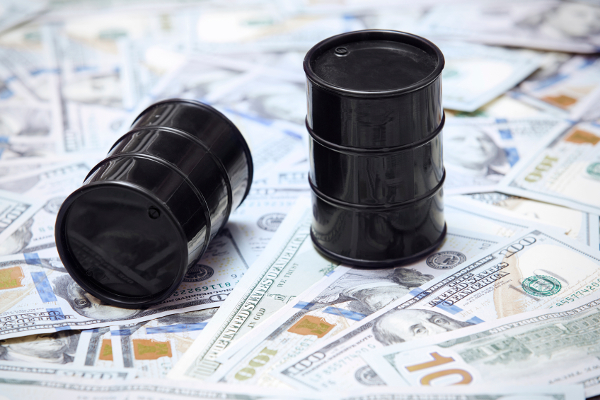US oil price falls to lowest level since 1999
This tumble came on the back of concern that the US is fast running out of places to store crude.
20th April 2020 10:57
by Tom Bailey from interactive investor
This tumble came on the back of concern that the US is fast running out of places to store crude.

The US oil price has fallen to its lowest level since 1999. West Texas Intermediate, the benchmark used for the US oil price, fell to less than $15 a barrel, the lowest it has been since 1999.
This tumble came on the back of concern that the US is fast running out of places to store crude oil following the large drop in demand since the outbreak of coronavirus. Recent output cuts are seen as insufficient to deal with the drop in demand.
Such bearish sentiment, however, has yet to make it to Brent Crude – the global oil benchmark – which is down roughly 4%, reaching around $27 a barrel at the time of writing.
- Just a handful of companies are responsible for the FTSE 100’s dividend yield, putting income investors at further risk
With the large declines primarily confined to the US price index, large global oil producers listed on the FTSE 100, BP and Royal Dutch Shell, have not seen large share price falls. At the same time, broadly optimistic sentiment about the ability of governments around the world to control the virus has seen the FTSE 100 trade in mostly positive territory since opening. At the time of writing (10am) the index is up 0.3% since open.
In normal circumstances, a decline in the price of oil would be read as good news for consumers and by extension economies that are not reliant on oil exports.
These, however, are not normal times. Low oil prices mean little for consumers in lockdown. As Paul Donovan, chief economist at UBS Global Wealth Management, notes: “Normally, this is a benefit for oil consumers. However, many consumers face an effective oil price of zero because they are in lockdown and not using oil. The fall in oil demand, not the price of oil, is cutting their cost of living.”
However, it is better news for companies still operating and using oil. Donavan notes: “Profit margins of corporate oil users may benefit.”
This article was originally published in our sister magazine Money Observer, which ceased publication in August 2020.
These articles are provided for information purposes only. Occasionally, an opinion about whether to buy or sell a specific investment may be provided by third parties. The content is not intended to be a personal recommendation to buy or sell any financial instrument or product, or to adopt any investment strategy as it is not provided based on an assessment of your investing knowledge and experience, your financial situation or your investment objectives. The value of your investments, and the income derived from them, may go down as well as up. You may not get back all the money that you invest. The investments referred to in this article may not be suitable for all investors, and if in doubt, an investor should seek advice from a qualified investment adviser.
Full performance can be found on the company or index summary page on the interactive investor website. Simply click on the company's or index name highlighted in the article.